University of Iceland
Allyson Macdonald (allyson@hi.is), professor, School of Education, University of Iceland
I have a background in physics, maths and applied maths and then moved on to a doctoral degree in science education. I grew up in South Africa and did my doctoral research there but the degree was awarded by Oregon State University. We have lived in Iceland since 1983 with short spells in Scotland, Malawi and South Africa. I first encountered the term ‘sustainability’ in the early 1990s when working in Malawi. Now I have been teaching courses in the School of Education, with others, on sustainability and education for almost ten years. The courses have been through many changes as our understanding of sustainability has evolved under the influence of students, visitors, our own experiences, research and last but not least, from the ActSHEN project. Of particular interest to me has been the role of the teacher and the role of the students as mediated by the curriculum, and more essentially by pedagogy and assessment. At what point are courses student-centred, student-driven or student-led?
Auður Pálsdóttir (audurp@hi.is), School of Education, University of Iceland
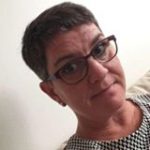 My background is in geography, teacher education and educational leadership and my doctoral research was about sustainability education. With an experience as a subject teacher in a compulsory school, a project manager of school self-evaluation and educator at teacher training at university level I have gained a unique opportunity to examine factors influencing sustainability as an emerging curriculum area. My interest has particularly been in the challenges of conceptual issues associated with sustainability education and the requirement of the teaching task associated with sustainability education, i.e. what teachers must decide on and do to provide students with learning opportunities.
My background is in geography, teacher education and educational leadership and my doctoral research was about sustainability education. With an experience as a subject teacher in a compulsory school, a project manager of school self-evaluation and educator at teacher training at university level I have gained a unique opportunity to examine factors influencing sustainability as an emerging curriculum area. My interest has particularly been in the challenges of conceptual issues associated with sustainability education and the requirement of the teaching task associated with sustainability education, i.e. what teachers must decide on and do to provide students with learning opportunities.
My participation in the ActSHEN project and its reflecting approach has provided me with a deep learning of and about work at higher education for sustainability. It has empowered me to critically engage with sustainability issues and evaluate tasks I select with students on the basis of its educational value. Also, experiments of blurring power relations between students and educators gave me new insights of how to approach holistic education and research within conventional university setting.
Caitlin Wilson (caitlin.meleney@gmail.com), School of Education, University of Iceland
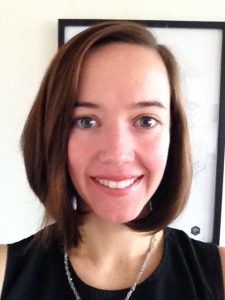 I’m interested in sustainability learning among adults, especially transformative and transgressive learning. My research areas have been qualitative analyses of transformative learning experiences among university students, professionals, and, currently, change agents. I’ve taught part-time at the School of Education since 2012 in teacher training and in educational studies. Currently I’m working at the Icelandic Environment Association with the Green Flag Eco-Schools program for sustainability education in schools. ActSHEN showed me how much is possible despite constraints. Teachers and students both have a lot of power, and when they give it to each other it multiplies. One of the most meaningful things that came out of the project is the community of practice we formed of higher educators working with students in our institutions for sustainability.
I’m interested in sustainability learning among adults, especially transformative and transgressive learning. My research areas have been qualitative analyses of transformative learning experiences among university students, professionals, and, currently, change agents. I’ve taught part-time at the School of Education since 2012 in teacher training and in educational studies. Currently I’m working at the Icelandic Environment Association with the Green Flag Eco-Schools program for sustainability education in schools. ActSHEN showed me how much is possible despite constraints. Teachers and students both have a lot of power, and when they give it to each other it multiplies. One of the most meaningful things that came out of the project is the community of practice we formed of higher educators working with students in our institutions for sustainability.
Sue Gollifer (seg12@hi.is), School of Education, University of Iceland
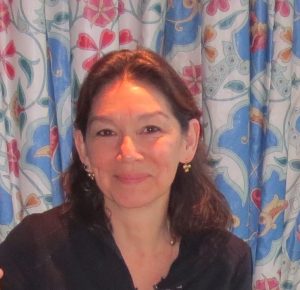 I have a background in English language teaching, adult education, literacy and community-based development. After more than 15 years of working in Cambodia on education projects, I moved to Iceland with my family and began a doctorate on the perspectives of upper secondary school teachers working with human rights education. I first came across the term “sustainability” applied to development whilst working in Cambodia. Drawing on my English language teaching and human rights education research, the project has provided an opportunity to explore the concept in relation to social justice themes and student/teacher collaboration to represent participatory learning processes. The reflective approach of the project has resulted in deep learning on the relationship between human rights and sustainability, the characteristics of sustainability pedagogy and the institutional challenges faced by educators working to promote sustainability education in conventional higher education settings.
I have a background in English language teaching, adult education, literacy and community-based development. After more than 15 years of working in Cambodia on education projects, I moved to Iceland with my family and began a doctorate on the perspectives of upper secondary school teachers working with human rights education. I first came across the term “sustainability” applied to development whilst working in Cambodia. Drawing on my English language teaching and human rights education research, the project has provided an opportunity to explore the concept in relation to social justice themes and student/teacher collaboration to represent participatory learning processes. The reflective approach of the project has resulted in deep learning on the relationship between human rights and sustainability, the characteristics of sustainability pedagogy and the institutional challenges faced by educators working to promote sustainability education in conventional higher education settings.
Sydney Ross Singer (srs48@hi.is), School of Education, University of Iceland.
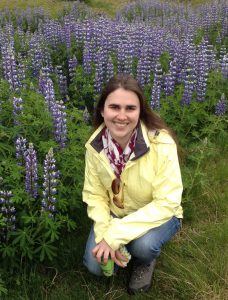 I became involved in ActSHEN projects as a student going through the International Studies in Education Masters program at the University of Iceland. More specifically, the program is based on innovative teaching practices for sustainability in higher education, and they constantly tested out new practices and strategies on us. This led me to inquire about the project, and I’ve since worked on collecting student feedback on these trial strategies, and been part of the writing team for several Case Studies in this book. I have a B.A. in Early Childhood Education from the University of Alaska, an M.A. in International Studies in Education from the University of Iceland, and a background in primary teaching, and adult ESL teaching. I currently look at student engagement, rights, and responsibilities in higher education, and Action Competence as an outcome of sustainable teaching practices.
I became involved in ActSHEN projects as a student going through the International Studies in Education Masters program at the University of Iceland. More specifically, the program is based on innovative teaching practices for sustainability in higher education, and they constantly tested out new practices and strategies on us. This led me to inquire about the project, and I’ve since worked on collecting student feedback on these trial strategies, and been part of the writing team for several Case Studies in this book. I have a B.A. in Early Childhood Education from the University of Alaska, an M.A. in International Studies in Education from the University of Iceland, and a background in primary teaching, and adult ESL teaching. I currently look at student engagement, rights, and responsibilities in higher education, and Action Competence as an outcome of sustainable teaching practices.
Participating in ActSHEN has developed my interests and investment in working towards sustainability in higher education settings. I am committed to improving education, and argue that much of the current practices for teaching sustainability do not lead to desired outcomes or change, and that is the very definition of unsustainable. This project has allowed me to begin looking at and working on research and pilot projects for new models of instruction. My research interests are in sustainability and education, educational pedagogy, curriculum and education systems, sustainability in higher education, social justice, and democratic education.
Iceland Academy of the Arts
Asthildur Jónsdóttir (astajons@lhi.is), assistant professor at the Iceland Academy of the Arts.
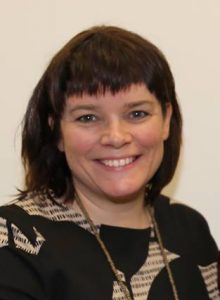 My research interests includes art and cultural movements that support sustainable development and Education for Sustainability at all levels, within both formal and informal contexts. I have curated exhibitions, developed curricula and taught in public and private schools in both lower and upper secondary level and colleges, in community centers, with people of all ages and backgrounds. Participating in ActSHEN has benefited me in dual ways, since I was both formulating learning principles for producing knowledge about higher education learning and teaching, while also using that model to improve my own learning and teaching practices.
My research interests includes art and cultural movements that support sustainable development and Education for Sustainability at all levels, within both formal and informal contexts. I have curated exhibitions, developed curricula and taught in public and private schools in both lower and upper secondary level and colleges, in community centers, with people of all ages and backgrounds. Participating in ActSHEN has benefited me in dual ways, since I was both formulating learning principles for producing knowledge about higher education learning and teaching, while also using that model to improve my own learning and teaching practices.
When presenting my findings in the case studies, I do not differentiate between the design and delivery of teaching and the process of researching these activities. That way I bring theory and practice closer, developing my practice theory. At the same time as I foster the ideology of fostering student-driven initiatives among my pre-service art teachers developed their personal practical knowledge towards education for sustainability. Through the ongoing process of the reflection my knowledge has changed and will continue to change and grow tomorrow.
University of Helsinki
Jaana Herranen (jaana.herranen@helsinki.fi), Unit of Chemistry Teacher Education, University of Helsinki.
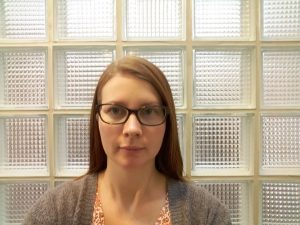 I am a phD-student and a chemistry teacher with research interest in student-centered education, especially in sustainable development in chemistry education.
I am a phD-student and a chemistry teacher with research interest in student-centered education, especially in sustainable development in chemistry education.
During the actshen-project, our unit arranged a new course “sustainable development in education”, which was student-planned and student-led. After the pilot course, the course has continued, and resulted in an enthusiastic group of students, who have passion for developing education for sustainable development in the higher education (and also other education levels). The process has convinced me of the possibilities of a student designed course. Participating in ActSHEN has inspired me to develop also the other courses and projects I am involved in, both in terms of the students` active role and ESD.
Janina Käyhkö (janina.kayhko@helsinki.fi), Master’s Student in Environmental Change and Policy, University of Helsinki.
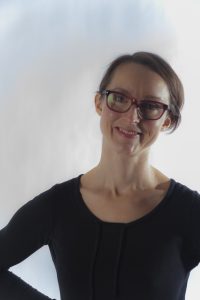 I have been studying the fascinating relation of human and nature, and how it appears as attempts of governing and nurturing our living environments. My alma mater is University of Helsinki but my work and activities with sustainable gardening, co-operatives, activism, local politics and all the people along the way play a significant role on how I conceptualize my field of expertese.
I have been studying the fascinating relation of human and nature, and how it appears as attempts of governing and nurturing our living environments. My alma mater is University of Helsinki but my work and activities with sustainable gardening, co-operatives, activism, local politics and all the people along the way play a significant role on how I conceptualize my field of expertese.
Getting to be part of the ActSHEN project empowered me more as an actor in the academic world. I found that participating in the process through my practical and theoretical expertise, as a student and as part of this diverse multidisciplinary group taught me to act more self-confidently and more extensively in the academic context in general. I think that for learning and living towards sustainability, we need participatory methods and courageousness to make things in a different manner than how they’ve always been done. My experiences with ActSHEN have pushed me to pursue this on the academic field along with what not fields.
Nelly Heiskanen (nelly.heiskanen@helsini.fi), MSc, Chemistry teacher at Helsinki Normal Lyceum, University of Helsinki.
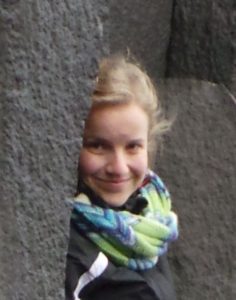 I got involved in ActSHEN through my curiosity to learn more about sustainable development and teaching. I also wanted to affect to the pedagogy commonly used in higher education. At that moment I was a master’s student at the unit of Chemistry Teachers Education at the University of Helsinki. This project enabled me to work with the questions that I wanted and needed to figure out for creating my own expertise. It provided me a magnificent chance to collaborate with different disciplines and with other professionals outside the Academia. The learning outcomes for me has been enormous in both knowledge and action skills. One and the biggest reason to work still for this project, even without paying, is that I wish other students to have the same opportunity that I did. We do have great student with brilliant minds so let’s not shackle them with instructor-led, top-down teaching!
I got involved in ActSHEN through my curiosity to learn more about sustainable development and teaching. I also wanted to affect to the pedagogy commonly used in higher education. At that moment I was a master’s student at the unit of Chemistry Teachers Education at the University of Helsinki. This project enabled me to work with the questions that I wanted and needed to figure out for creating my own expertise. It provided me a magnificent chance to collaborate with different disciplines and with other professionals outside the Academia. The learning outcomes for me has been enormous in both knowledge and action skills. One and the biggest reason to work still for this project, even without paying, is that I wish other students to have the same opportunity that I did. We do have great student with brilliant minds so let’s not shackle them with instructor-led, top-down teaching!
Sakari Tolppanen (sakari.toippanen@helsinki.fi), Unit of Chemistry Teacher Education, University of Helsinki.
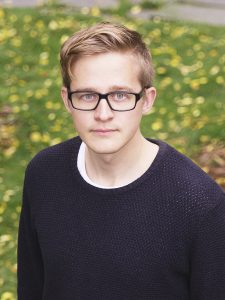 My interests are in advancing holistic, multidisciplinary and collaborative sustainability education, especially in climate change education. I do this by conducting research that helps develop sustainability projects, such as non-formal educational programs and university courses. I have taught in teacher training courses at the University of Helsinki, as well as in public schools. I have also been involved in developing activities and online courses on sustainability issues for students, teachers and the general public. In my latest project, I worked as a pedagogical expect to create a course on climate change, meant for all students in higher education institutions (www.climatenow.fi).
My interests are in advancing holistic, multidisciplinary and collaborative sustainability education, especially in climate change education. I do this by conducting research that helps develop sustainability projects, such as non-formal educational programs and university courses. I have taught in teacher training courses at the University of Helsinki, as well as in public schools. I have also been involved in developing activities and online courses on sustainability issues for students, teachers and the general public. In my latest project, I worked as a pedagogical expect to create a course on climate change, meant for all students in higher education institutions (www.climatenow.fi).
Participating in ActSHEN pushed me to test student-led approaches I never envisioned possible. It also gave me valuable insight on the benefits of multidisciplinary collaboration. As a result, I am more confident and determined to increase collaboration and student involvement in planning and implementing sustainability education.
Maija Aksela (maija.aksela@helsinki.fi), Professor, Research director, Director of the Unit of Chemistry Teacher Education, University of Helsinki, and Director of the LUMA Centre Finland
Education for sustainable development (ESD) is in a central role in our teacher education and its’ research (https://blogs.helsinki.fi/kem-ope/en/). Participating in ActSHEN has inspired us for strengthen our ESD strategy, and built a student-led, novel course “Sustainable Development in Education”. Student-centred teacher education has been our aim since year 2001 when the unit was built. I have worked about 30 years in chemistry education in Finland, and about 20 years in chemistry teacher education. Sustainable development is also my personal interest. In addition, I am the director of LUMA Centre Finland (http://www.luma.fi ). Our aim is to engage children and young people in math, science and technology education, and support teachers’ lifelong learning. Promoting sustainable development is a part of the national LUMA program.
University of Turku
Veli-Matti Vesterinen (velimatti.vesterinen@gmail.com), senior lecturer, Teaching and Learning Laboratory, Department of Chemistry, University of Turku
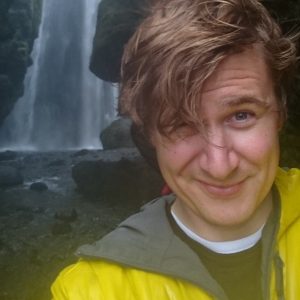 I am an educational design researcher working in science teacher education, with a strong belief that all education should be about empowerment. Through this project I have come to realise that goals of social justice and sustainability are not distinct from the act of teaching and learning. To support these goals we must not only transform what we learn, but also how and why we teach and learn. This transformation of education cannot happen by dictating the goals from above. It has to be a communal and collaborative project with the learner in the center of action as an active participant and decision maker.
I am an educational design researcher working in science teacher education, with a strong belief that all education should be about empowerment. Through this project I have come to realise that goals of social justice and sustainability are not distinct from the act of teaching and learning. To support these goals we must not only transform what we learn, but also how and why we teach and learn. This transformation of education cannot happen by dictating the goals from above. It has to be a communal and collaborative project with the learner in the center of action as an active participant and decision maker.
I have participated on ActSHEN project from the very beginning. As a postdoctoral researchers I had the opportunity to work with several research groups. This provided me a good opportunity to act as a critical friend in sustainability education for both my colleagues in various universities as well as my partners in this project. I owe my gratitude to my supervisors and colleagues at University of Helsinki, Umeå university, Stockholm university and University of Turku for providing me the freedom and support to participate in this project.
Uppsala University (CEMUS -Centre for Environment and Development Studies)
Isak Stoddard (isak.stoddard@cemus.uu.se), CEMUS, Uppsala University.
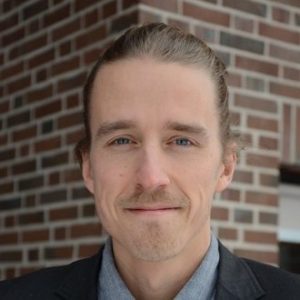 I am Acting Program Director at the Centre for Environment and Development Studies (CEMUS) at the University of Uppsala and Swedish University of Agricultural Sciences. Since I joined CEMUS in 2005, I have worked mostly with developing transformative and transdisciplinary approaches to higher education as well as institutional change in response to the global environmental and social challenges of our times. It was through this work that I became involved in ActSHEN, which has been a very meaningful way to conceptualize, reflect on and further develop the collaborative learning taking place at CEMUS and in Uppsala, in close partnership with students and faculty in the other nordic institutions of higher education taking part in the project.
I am Acting Program Director at the Centre for Environment and Development Studies (CEMUS) at the University of Uppsala and Swedish University of Agricultural Sciences. Since I joined CEMUS in 2005, I have worked mostly with developing transformative and transdisciplinary approaches to higher education as well as institutional change in response to the global environmental and social challenges of our times. It was through this work that I became involved in ActSHEN, which has been a very meaningful way to conceptualize, reflect on and further develop the collaborative learning taking place at CEMUS and in Uppsala, in close partnership with students and faculty in the other nordic institutions of higher education taking part in the project.
The past few years I have also helped initiate, and now coordinate, a new 10-year research-initiative on climate change leadership, centered around a series of visiting professorships at Uppsala University made possible by a donation from Zennström Philanthropies. My educational background is in engineering physics, systems technology and energy systems. A dual citizen of Sweden and the United States, I am now based in Uppsala, but enjoy frequent adventures to the Scandinavian mountains for skiing, wandering and climbing.
Jakob Grandin (jakob.grandin@uib.no), CEMUS, Uppsala University and SpaceLab, University of Bergen
I took my first course at CEMUS (the Centre for Environment and Development Studies at Uppsala University) as a young student in 2005 and have since worked at CEMUS both with specific courses and with the overall coordination and development of the education. I just moved to the University of Bergen to join SpaceLab as a PhD fellow, where I examine the potential of European cities as drivers of rapid climate and energy transformations. At both CEMUS and SpaceLab, I have had two main interests: to bring the critical social sciences into the conversation about sustainability and transformation, and to co-create methods for learning and governance that are appropriate for the complexity of current social and environmental challenges. I suppose this is what made me so excited about ActSHEN.
Engaging in conversations with the ActSHEN group has been a great way for me to extend my understanding of how to involve students in meaningful ways both as knowledge producers and as co-creators of their education. It has also been very inspiring to see how we have translated principles of student-led and participatory education to work in quite different academic contexts. Outside work, I love hiking and am currently slowly trying to learn cross-country skiing in order to extend the outdoors season – this is where I am able to create a space the reflection that I think is essential in any transformation effort.
List of all project participants
INSTITUTION |
|
University of Iceland |
|
| Allyson Macdonald | allyson@hi.is |
| Auður Pálsdóttir | audurp@hi.is |
| Caitlin Wilson | caitlin.meleney@gmail.com |
| Julia Vol | julia.vol.wf@gmail.com |
| Sue Gollifer | seg12@hi.is |
| Sydney Ross Singer | srs48@hi.is |
Iceland Academy of Arts |
|
| Ásthildur Björg Jónsdóttir | astajons@lhi.is |
| Guðbjörg Jóhannesdóttir | gudbjorgr@lhi.is |
| Gunndís Finnbogadóttir | gunndis@lhi.is |
| Massimo Santanicchia | massimo@lhi.is |
| Sigrún Birgisdóttir | sigrunbirgis@lhi.is |
| Jan van Boeckel | polarstarcentre@yahoo.com |
University of Helsinki |
|
| Jaana Herranen | jaana.herranen@helsinki.fi |
| Janina Käyhkö | janina.kayhko@helsinki.fi |
| Nelly Heiskanen | nelly.heiskanen@helsinki.fi |
| Sakari Tolppanen | sakari.tolppanen@helsinki.fi |
| Maija Aksela | maija.aksela@helsinki.fi |
University of Turku |
|
| Veli-Matti Vesterinen | velimatti.vesterinen@gmail.com |
Uppsala University |
|
| Isak Stoddard | isak.stoddard@csduppsala.uu.se |
| Jakob Grandin | jakob.grandin@uib.no |
| Per Ingvar Haukeland | haukeland@tmforsk.no |